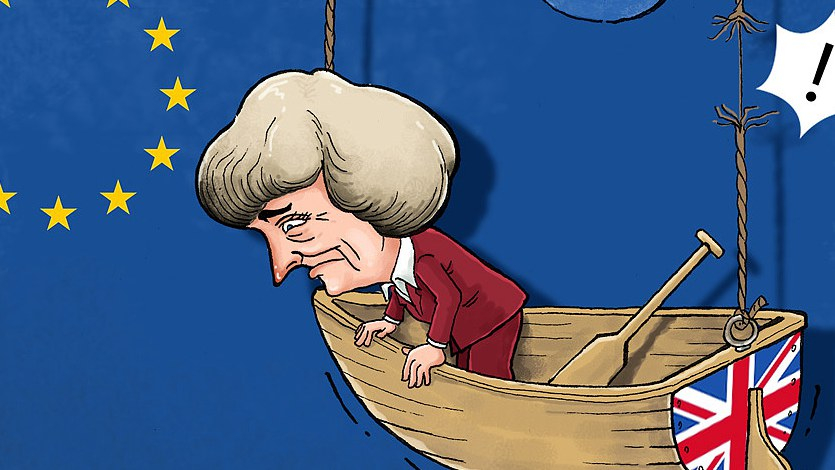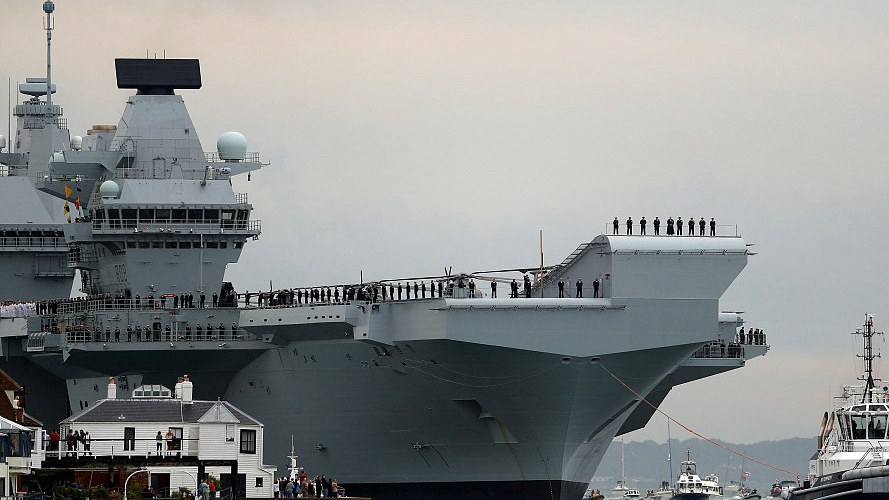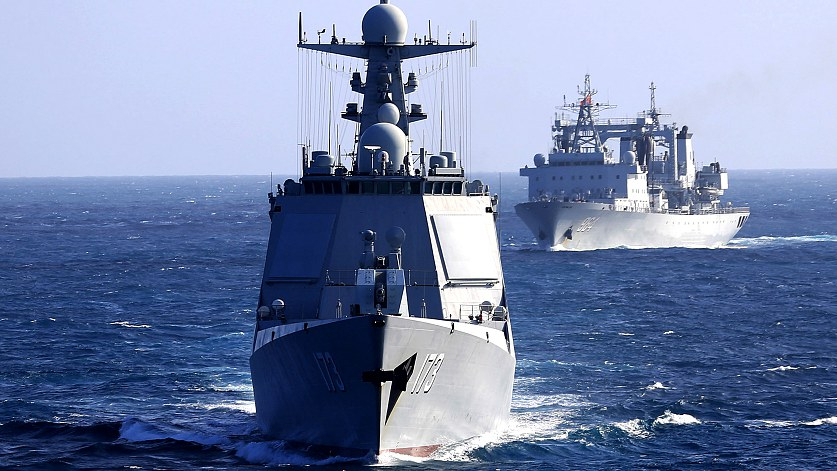
Opinion
20:50, 12-Feb-2019
Hard power won't help Britain
Tom Fowdy

Editor's note: Tom Fowdy, who graduated with an MSc in Chinese Studies from Oxford University and majored in politics at Durham University, writes on the international relations of China and the Democratic People's Republic of Korea. The article reflects the author's views, and not necessarily those of CGTN.
“Rule Britannia, Britannia Rules the Waves” - is an old song associated with the might of the long foregone British Empire.
It references the fact that at its height, Britain was the most powerful naval power in the world.
The empire's naval presence stretched to every corner of the globe, upholding what was an undisputed hegemony over maritime trade and commerce.

The Royal Navy's new aircraft carrier, HMS Queen Elizabeth, is towed by tugs as it arrives at Portsmouth Naval base, its new home port, in Portsmouth, Britain. /VCG Photo
The Royal Navy's new aircraft carrier, HMS Queen Elizabeth, is towed by tugs as it arrives at Portsmouth Naval base, its new home port, in Portsmouth, Britain. /VCG Photo
Of course, those times are long gone. But for many in Britain, that memory lives on as if they were still present.
A continuing dilemma of modern British politics has been an inability to accept the reality that the country is no longer a global superpower above all others, with a mission to lead and shape the world to its will.
Such beliefs had a pervasive influence on the idea and discourses of Brexit, influencing attitudes that Britain was “different to Europe” and had to “stand up to the continent” and “reclaim its sovereignty”- looking back to the rosy memories of a time where the country was “mightier” and “stronger” than its current plight.
Politicians, most specifically in the Conservative Party, have continued to trumpet this tune to opportunistically whip up the nationalist euphoria of voters.
This was one of the biggest problems of the European referendum campaign, recently, however, these banal ideas echoed through in the recent comments of defense secretary, Gavin Williamson, who made remarks on Monday setting the stage for a hawkish and interventionist policy against China.
With Britain desperately seeking to stay close to Washington, London has begun to show signs of a more hawkish and confrontational policy towards Beijing.
But of course, voters have little interest in that, nor would few take time to understand its real motivations.
They are most alarmed by a foreign policy crisis which is tearing the country apart, Brexit.
They show severe levels of doubt in the government's ability to handle it, they are worried about the loss of jobs, investment and so on - so just how to get them back on board?
You wrap up your foreign policy in the guise of heroic, “Rule Britannia” hubris, you appeal to their emotions and most crucially get them to downplay your economic failures.
Doing directly that, Williamson projected a series of statements using highly belligerent and patriotic language, branding policy in the light of opportunities derived from Brexit.
He stated that Britain and its allies must be prepared to use “hard power to support our interests”, expressing the belief that departure from the EU can bring “unparalleled opportunity” to maximize Britain's influence around the world.
In tandem to such comments, it was announced that London would be sending an aircraft carrier to the South China Sea, targeting those “who flout international law”.
Yet this should only be understood as political theatre.
Far from building up a revived global military presence and glorying in nationalist nostalgia, Britain's Conservative government has not only engaged in over 9 billion pounds worth of defense cuts since 2010, removing scores of jobs from the armed forces, but it's also in the stage of systematically alienating itself from 27 neighboring countries, removing its participation in a comprehensive political and economic union capable of projecting influence worldwide.

The South China Sea Fleet organized a fleet formation training during the Chinese Spring Festival. /VCG photo
The South China Sea Fleet organized a fleet formation training during the Chinese Spring Festival. /VCG photo
Dressing up the deployment of an aircraft carrier as a heroic feat cannot to any extent mitigate this damage, yet to some voters, it is a symbolism strong enough to encourage support for the status quo and to discourage critical thinking about the country's reality, built on the ruse of historical memories.
This kind of saber rattling will hurt Britain's ties with China and see it ever more isolated, yet it is precisely what some voters want to hear.
As long as it continues to win the Conservatives support is as long as it will continue.
As a whole, however, modern Britain will not thrive nor find its correct place in the modern world until the day comes that it relinquishes the myth that it is still a “superpower” with a mission to the world.
It must recalibrate its national identity in a pragmatic, post-imperialist light. Otherwise, the ruse of Empire will continue to stand as a façade in the light of explicit policy failure.
Be it known, Britannia doesn't rule the waves anymore.
(If you want to contribute and have specific expertise, contact us at opinions@cgtn.com)

SITEMAP
Copyright © 2018 CGTN. Beijing ICP prepared NO.16065310-3
Copyright © 2018 CGTN. Beijing ICP prepared NO.16065310-3